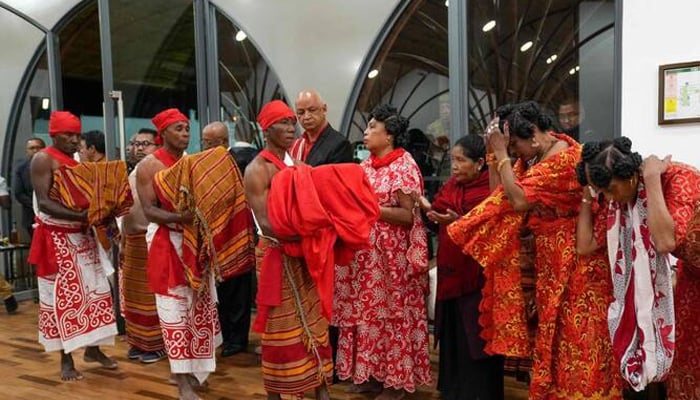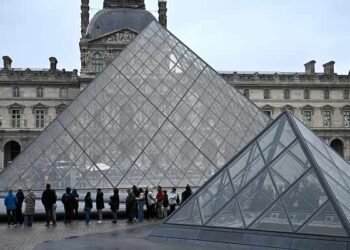Select Language:
Men carry the three Sakalava skulls as descendants of King Toera bow during a welcoming ceremony for their return to Madagascar from France at Ivato International Airport in Antananarivo, September 1, 2025. — AFP
Madagascar hosted a ceremony on Tuesday to commemorate the return of three skulls that France had held for 128 years. One of the skulls is thought to belong to a Malagasy king who was beheaded by French forces in the 19th century.
France transferred the skulls in Paris on August 27, marking the first repatriation since a 2023 law was enacted to facilitate the return of human remains seized during colonial times.
The artifacts are believed to include the skull of King Toera, leader of the Sakalava people, executed in 1897, along with the remains of two of his warriors.
The skulls arrived in Madagascar late Monday and were greeted at the airport by members of the Sakalava community dressed in traditional attire.
Placed in three boxes draped with Madagascar’s flag, the skulls were transported through the capital, Antananarivo, to the city’s mausoleum on Tuesday. There, President Andry Rajoelina and various government and Sakalava representatives received them.
Later this week, the skulls are expected to be buried on the western coast in Belo Tsiribihina, approximately 200 miles from the capital.
Initially taken to France as trophies, the skulls have been stored in Paris’s national history museum alongside hundreds of other Malagasy remains. Madagascar gained independence in 1960 following over 60 years of French colonial rule.
French Culture Minister Rachida Dati stated at the Paris event that a joint scientific committee confirmed the skulls are from the Sakalava people. However, she noted that it can only be “presumed” that one belongs to King Toera.
In recent years, France has repatriated various artifacts taken during its colonial period, but each instance required specialized legislation. The passing of this new law now streamlines the process for returning human remains to their countries of origin.







